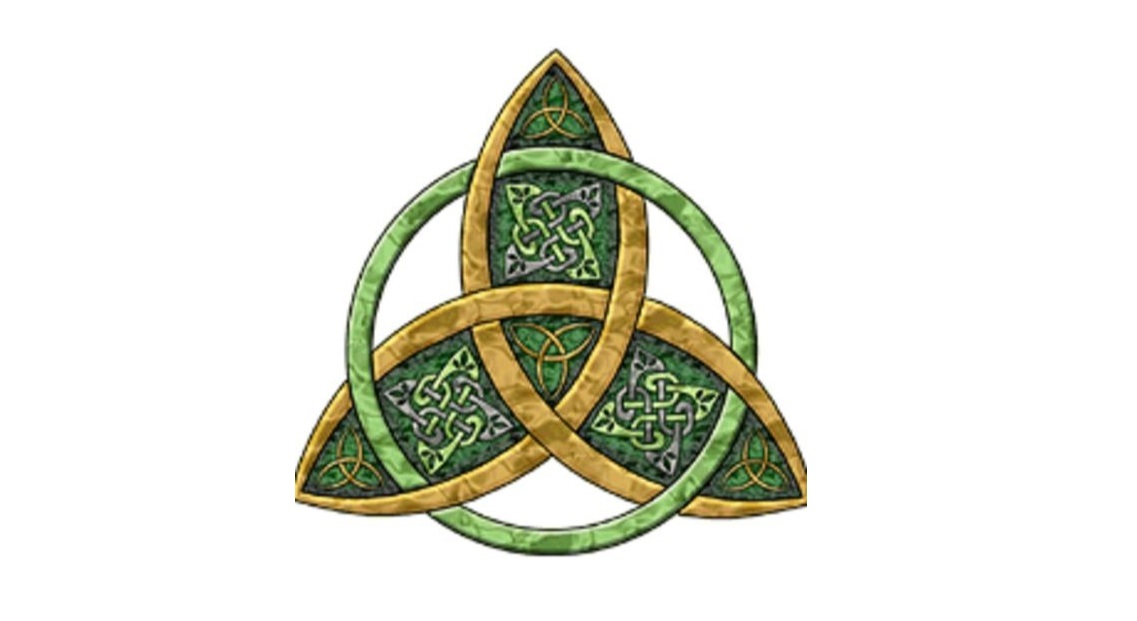God’s Goodness: Desire and Human Destiny
Photo credit: Johannes Plenio, Wallpapers Wide.
Introduction
This page presents God’s other-orientedness as Father, Son, and Holy Spirit. God created us to be with Him and like Him and to allow His desires to shape our desires.
Messages and Resources on the Goodness of God in Human Destiny
Heaven as Sharing in the Triune Life of God
This is a message based on John 14 and Jesus' teaching on the Father and the Spirit indwelling us, now and forever.
Into the Divine Nature, Into the Family God Is
A message on 2 Peter 1:1 - 4; God is a loving Tri-Unity, and salvation is His work of adjusting us to the culture of the Trinity
Slides of a presentation given December 11, 2021 to the Reconstruction 2021 class. This presentation is a deep dive into Romans 9 - 11 based on literary and biblical-intertextual exegesis, and patristic interpretation. Everyone but Augustine of Hippo believed that God granted and maintained human free will, because we are partners with God in shaping our own human nature. Romans 9 - 11 refers to God accomplishing His purposes in history, delivering Israel from Egypt and delivering Jesus from sin and mortality. Romans 9 - 11 does not refer to God accomplishing a “double predestination” into the realm of the eternal. Summarized by Finney Raju, Predestination and Free Will in Romans 9 - 11, by Mako A. Nagasawa. Society of Evangelical Arminians, Oct 10, 2018. See also Theology 201: Critique of Augustine, a page on our website summarizing Augustine’s redefinition of “predestination” as a word, and his problematic impact, with links to many more resources.
Text of an essay, along with long and short versions of a slide presentation. The long version comes from the 2022 Reconstruction class. This is a full exploration of how hell is the love of God because (1) the united church taught that for over a thousand years; (2) God's Triune nature requires all other activity of God to flow out of His love; (3) literary exegesis of fire shows that it is God's call to purification. This study largely depends on the theme of fire in Scripture; please see the resources on the page God’s Goodness in the Theme of Fire.
Other Resources on the Goodness of God in Human Destiny
The early Christian understanding of human destiny is that our ascent to God is infinite, because we are finite beings loved by an infinite God of love, which means infinite growth.
Papias, Fragment 5, says:
"But that there is this distinction between the habitation of those who produce an hundredfold, and that of those who produce sixty-fold, and that of those who produce thirty-fold; for the first will be taken up into the heavens, the second class will dwell in Paradise, and the last will inhabit the city; and that on this account the Lord said, "In my Father's house are many mansions:" for all things belong to God, who supplies all with a suitable dwelling-place, even as His word says, that a share is given to all by the Father, according as each one is or shall be worthy. And this is the couch in which they shall recline who feast, being invited to the wedding. The presbyters, the disciples of the apostles, say that this is the gradation and arrangement of those who are saved, and that they advance through steps of this nature; and that, moreover, they ascend through the Spirit to the Son, and through the Son to the Father; and that in due time the Son will yield up His work to the Father, even as it is said by the apostle..."
Irenaeus of Lyons, Against Heresies 38.3 says:
“By this arrangement, therefore, and these harmonies, and a sequence of this nature, man, a created and organized being, is rendered after the image and likeness of the uncreated God — the Father planning everything well and giving His commands, the Son carrying these into execution and performing the work of creating, and the Spirit nourishing and increasing [what is made], but man making progress day by day, and ascending towards the perfect, that is, approximating to the uncreated One. For the Uncreated is perfect, that is, God. Now it was necessary that man should in the first instance be created; and having been created, should receive growth; and having received growth, should be strengthened; and having been strengthened, should abound; and having abounded, should recover [from the disease of sin]; and having recovered, should be glorified; and being glorified, should see his Lord. For God is He who is yet to be seen, and the beholding of God is productive of immortality, but immortality renders one near unto God.”
Clement of Alexandria, Stromata 6.24, says:
"Conformably, therefore, there are various abodes, according to the worth of those who have believed. To the point Solomon says, "For there shall be given to him the choice grace of faith, and a more pleasant lot in the temple of the Lord." For the comparative shows that there are lower parts in the temple of God, which is the whole Church. And the superlative remains to be conceived, where the Lord is. These chosen abodes, which are three, are indicated by the numbers in the Gospel -- the thirty, the sixty, the hundred. And the perfect inheritance belongs to those who attain to 'a perfect man,' according to the image of the Lord."
Christopher John Gousmett, Shall the Body Strive and Not Be Crowned. Academia.edu PhD dissertation, University of Otago, 1993. Gousmett gives a great overview, citing and exploring multiple sources in early Christian history.
Closer to Truth, What is God's Judgment? | Episode 412 | Closer To Truth, Jan 21, 2021. Host Robert Lawrence Kuhn first interviews Christian scholars Richard Swinburne (Oxford philosopher) and John Polkinghorne (Cambridge physicist and Anglican priest). Both explain the human being as a human becoming, and therefore hell as the condition of having destroyed our sense of agreement with God’s definition of good and evil, healing and addiction. Kuhn also interviews representatives of Islam, Hinduism, and Buddhism.
God’s Goodness: Topics:
Here’s how to navigate this section on God’s Goodness. The Introduction focuses on the biblical presentation of Father, Son, and Holy Spirit; and the implications. Human Becoming and God’s Goodness spotlights creation and humanity, especially how God made humans as human beings and human becomings. Israel and God’s Goodness tackles big questions about God taking human life to protect Israel, and even why God created an Israel in the first place. Jesus and God’s Goodness explains God revealing Himself fully in Jesus, and addresses Protestant notions of limited atonement and double predestination as incompatible with God’s Triune character of love. Holy Spirit and God’s Goodness explores the divine person of the Spirit and the gifts of the Spirit. Human Destiny and God’s Goodness explains how desire and development are part of the outworking of human becoming, destiny, and God’s goodness. Fire and God’s Goodness explains why the portrayal of divine fire in Scripture is always God’s call to participate in refinement and purification. Human Evil and God’s Goodness explains why God is good by solving the problem of human evil in a loving way. Human Suffering and God’s Goodness explains why God is good because He suffers with us since the fall, and heals the deepest suffering behind the suffering.
Desire: Topics:
Here’s how to understand this section on Desire: We believe Jesus’ own human desires, journey, and teaching are normative for human becoming, so we pursue Christian Spiritual and Emotional Formation to help us better understand pastoral, relational, and communal questions that come up as we pursue Jesus’ vision for human flourishing. We stay aware of research and reflections on Human Moral and Emotional Development. Many insights into the mind-brain-body connection in Neuroscience and Epigenetics and Sleep and Rest are helpful. We follow research on Friendship and Happiness, track resources about Greed and How Money Makes Us More Greedy, point out in Consumption how capitalist overconsumption and addiction challenge the notion that we are “sovereign individuals,” maintain the biblical critique of Interest Rate Lending and Debt as a way people fund overconsumption and entrap themselves, reflect on Sex as part of human moral and emotional development; we critique the Sex Industry for how it distorts us. Human Destiny itself can be understood through the lens of desire.























